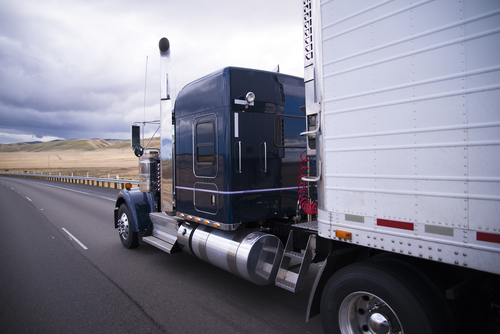
More than 1,500 local government officials sent a letter to Congress Monday opposing any increases in the size and weight of trucks, including single-trailer trucks.
Organized by the Coalition Against Bigger Trucks, the signers to the letter include county and municipal officials, as well as officials with public works departments and county engineers across the country.
“Local governments, and our constituents, are the backbone of this county and we want Congress to know the policies they debate and implement have serious consequences,” said Berks County, Pennsylvania Chairman Christian Leinbach. “Heavier and longer trucks will damage our roads and bridges, leaving local taxpayers footing the bill. We cannot afford this, and Members of Congress need to hear our concerns.”
At issue is the current debate over increasing truck weights on interstate highways. Leinbach, who also serves on the Board of Directors for the National Association of Counties, said increasing those weights would impact local infrastructure.
“Trucks do not load and unload on interstates. These trucks find their way on to local roads and bridges, whether it is for meals and gas or to deliver their cargo. This impacts us all,” he said.
According to the study, “The Impacts of Heavier Trucks on Local Bridges,” more than 72,000 local bridges would be put at-risk if truck weights were increased to 91,000 pounds, the current weight limit being debated in Congress. Additionally, the study found the cost to replace those bridges would be more than $60 billion – a cost absorbed by state and local governments. None of the current legislation that increases truck weights provides any additional funding for infrastructure, the coalition said.
“The impact of heavier and longer trucks on locally owned bridges is an important issue that needs to be explored nationally, including by Congress,” Kevan Stone, CEO/Executive Director of the National Association of County Engineers, said. “While we have long known that heavier trucks increase bridge damage, this study represents the first attempt to work directly with local officials to quantify the real-world impacts. County officials, specifically county engineers, know their bridges better than anyone else.”
The letter is being sent at the same time bigger-truck proponents lobby legislators to allow longer and heavier trucks on the road. This includes efforts to get their favored language in must-pass legislation, such as the farm bill and appropriations funding bills. These bills are too important to be put at risk by including such a deeply controversial issue.
Coalition members said the letter was sent while lobbyists are urging Congress to allow the longer and heavier trucks on the road as part of must-pass legislation like the Farm Bill and appropriations funding bills.